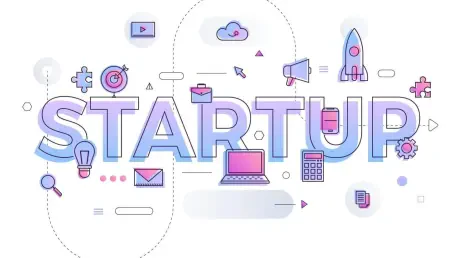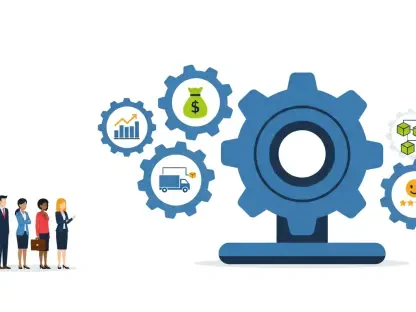Today, we’re thrilled to sit down with Vijay Raina, a renowned expert in enterprise SaaS technology and software design. With his deep insights into the tech investment landscape and thought leadership in software architecture, Vijay brings a unique perspective on the latest trends in startup funding. In this conversation, we dive into the bustling activity of US startup investors in October, exploring standout players, dominant sectors like AI, and the strategies behind leading venture firms. We’ll also unpack the significance of massive investments and the dynamics at play in the seed stage.
What caught your attention most about the US startup investment scene in October?
I was really struck by the continued momentum in the market, especially with familiar heavyweights like Andreessen Horowitz and Nvidia making big moves. The focus on AI-driven startups, from infrastructure to innovative applications, dominated the landscape. It’s clear that investors are doubling down on technologies they believe will shape the future, and October reflected that with some jaw-dropping round sizes.
How would you compare the investment activity in October to what we saw in September?
From what I’ve observed, October held pretty steady compared to September’s pace. While some firms slightly dialed back their dealmaking, the overall energy in the market didn’t wane much. The consistency in activity, especially among top players, suggests that investors are still eager to deploy capital, particularly in high-growth areas like AI, even as we head toward the end of the year.
Were there any unexpected trends or sectors that seemed to capture investors’ focus this month?
I wouldn’t say there were huge surprises, but the sheer scale of investment in AI infrastructure—like data centers—stood out. It’s not just about AI applications anymore; investors are betting big on the backbone that powers these technologies. That level of attention to foundational tech, alongside the usual software and app-focused startups, shows a maturing perspective on what’s needed for long-term growth in this space.
Andreessen Horowitz led the pack with at least 14 deals. What do you think is fueling their aggressive activity?
I think their activity comes down to a combination of deep expertise and a clear vision for transformative tech. They’ve positioned themselves as leaders in spotting early trends, especially in AI and software, and they have the capital and network to act fast. Their high deal count likely reflects a strategy of casting a wide net while still being strategic about where the next big disruption will come from.
Sequoia Capital and General Catalyst each closed 13 deals. How do their investment focuses seem to differ from Andreessen Horowitz?
While all three are powerhouses, I’ve noticed that Sequoia often leans into a broader mix of industries, balancing tech with other high-growth sectors. General Catalyst, on the other hand, seems to have a knack for identifying scalable software solutions with enterprise potential. Andreessen Horowitz, by contrast, appears more laser-focused on tech-first, future-defining bets, especially in AI. It’s a subtle difference, but it shows in the kinds of portfolios they’re building.
Andreessen Horowitz also topped the charts by leading seven post-seed rounds. What might be giving them such a strong position in leading deals?
Leading rounds often comes down to reputation and resources. They’ve built a track record of not just funding but actively guiding startups to success, which makes founders trust them to take the helm. Plus, their ability to bring in co-investors and provide strategic support likely gives them an edge in negotiating lead positions. It’s about being seen as a partner, not just a check-writer.
Nvidia made headlines with a massive $2 billion Series B for Reflection.AI. What does this tell us about their approach to investing right now?
Nvidia’s move signals a very deliberate focus on AI at scale. They’re not just playing in their hardware lane; they’re investing heavily in the ecosystem that drives AI innovation. A $2 billion round shows they’re willing to make outsized bets on companies that align with their vision of where computing power is headed. It’s a statement that they’re shaping the future, not just reacting to it.
Mubadala Capital co-led a $1.38 billion round for Crusoe Energy Systems, focused on AI data centers. Why do you think infrastructure for AI is drawing such enormous capital?
AI infrastructure is the unsung hero of the tech revolution right now. Without robust data centers and energy-efficient systems, the AI models everyone’s excited about can’t scale. Investors see this as a critical bottleneck to solve, and the potential returns are massive given the demand. It’s a foundational play—get this right, and you enable everything else. That’s why we’re seeing billion-dollar rounds in this space.
Y Combinator continues to dominate seed-stage investments, despite a slower pace this month. What keeps them at the forefront of early-stage funding?
Y Combinator’s strength lies in its ecosystem. They’ve perfected a model that combines funding, mentorship, and a powerful network of alumni and investors. Even if their pace slowed in October, their ability to spot and nurture raw talent at the seed stage is unmatched. They’re often the first stamp of credibility for a startup, and that reputation keeps them on top.
What’s your forecast for the startup investment landscape as we head into the final months of the year?
I expect we’ll see a bit of a sprint in November as investors look to close out deals before the holiday slowdown. AI and its supporting infrastructure will likely remain hot, but I also think we might see some renewed interest in other sectors as portfolios diversify. The big question is whether the momentum holds into 2025 or if macro uncertainties start to weigh more heavily. It’s going to be an interesting finish to the year.









